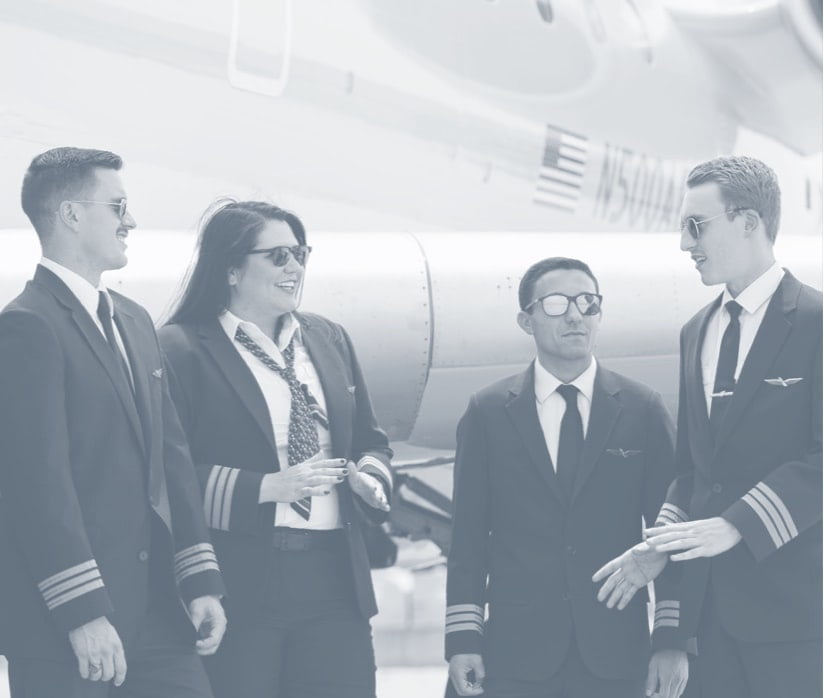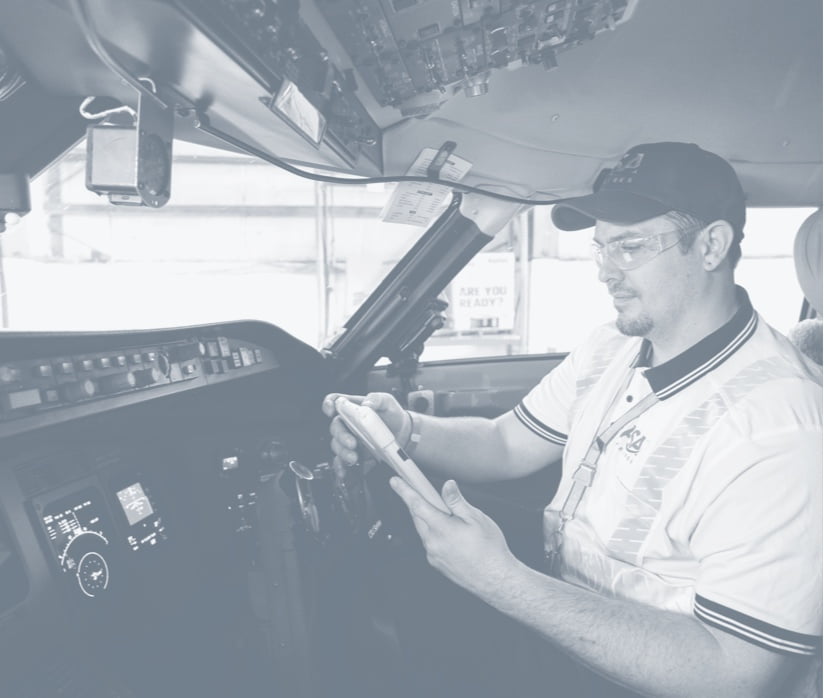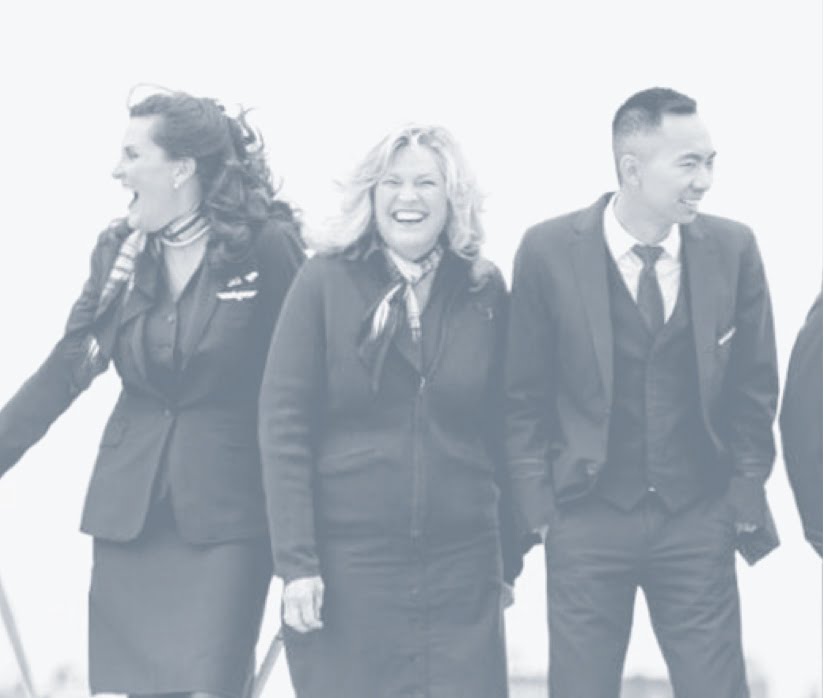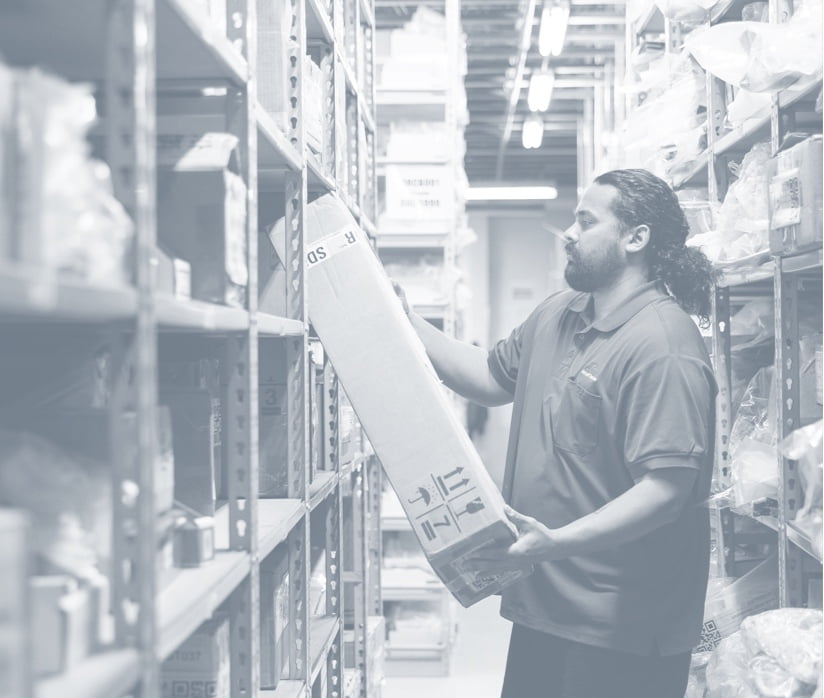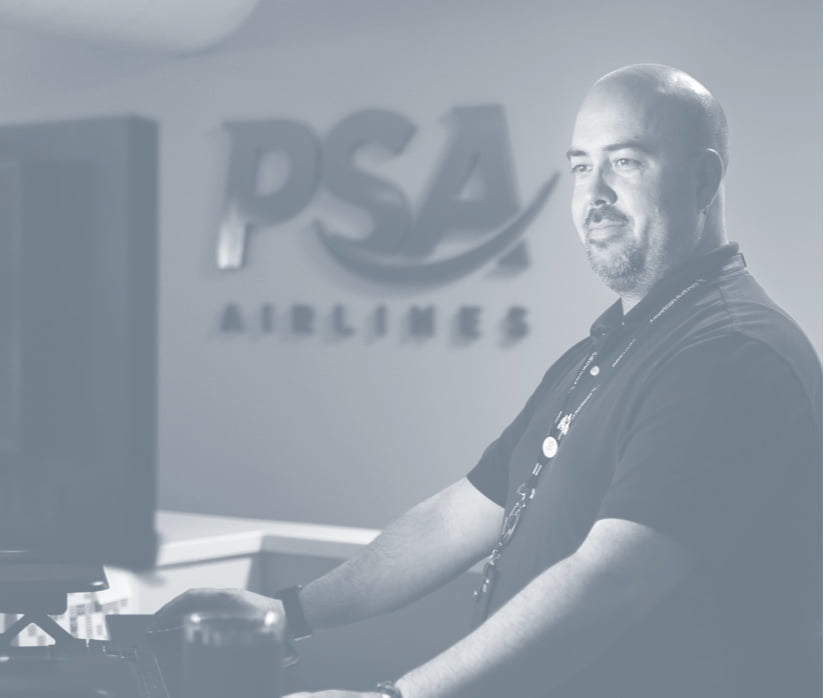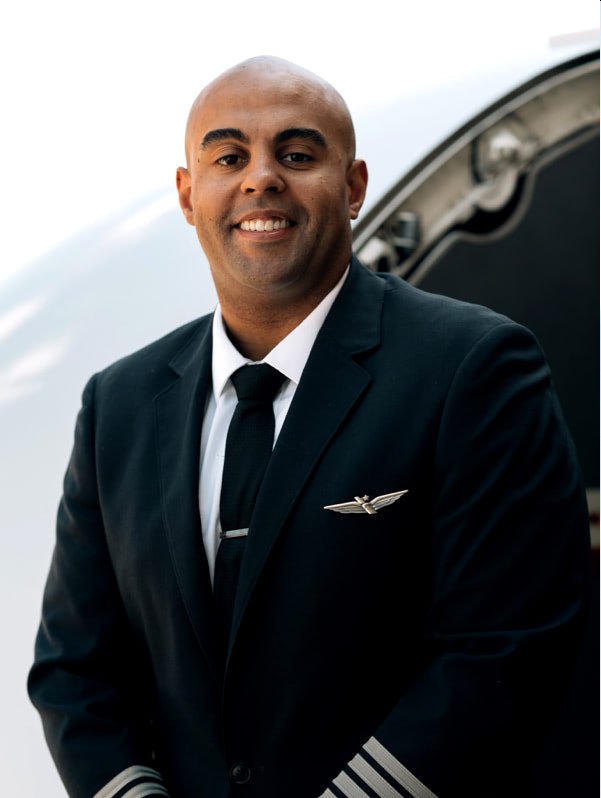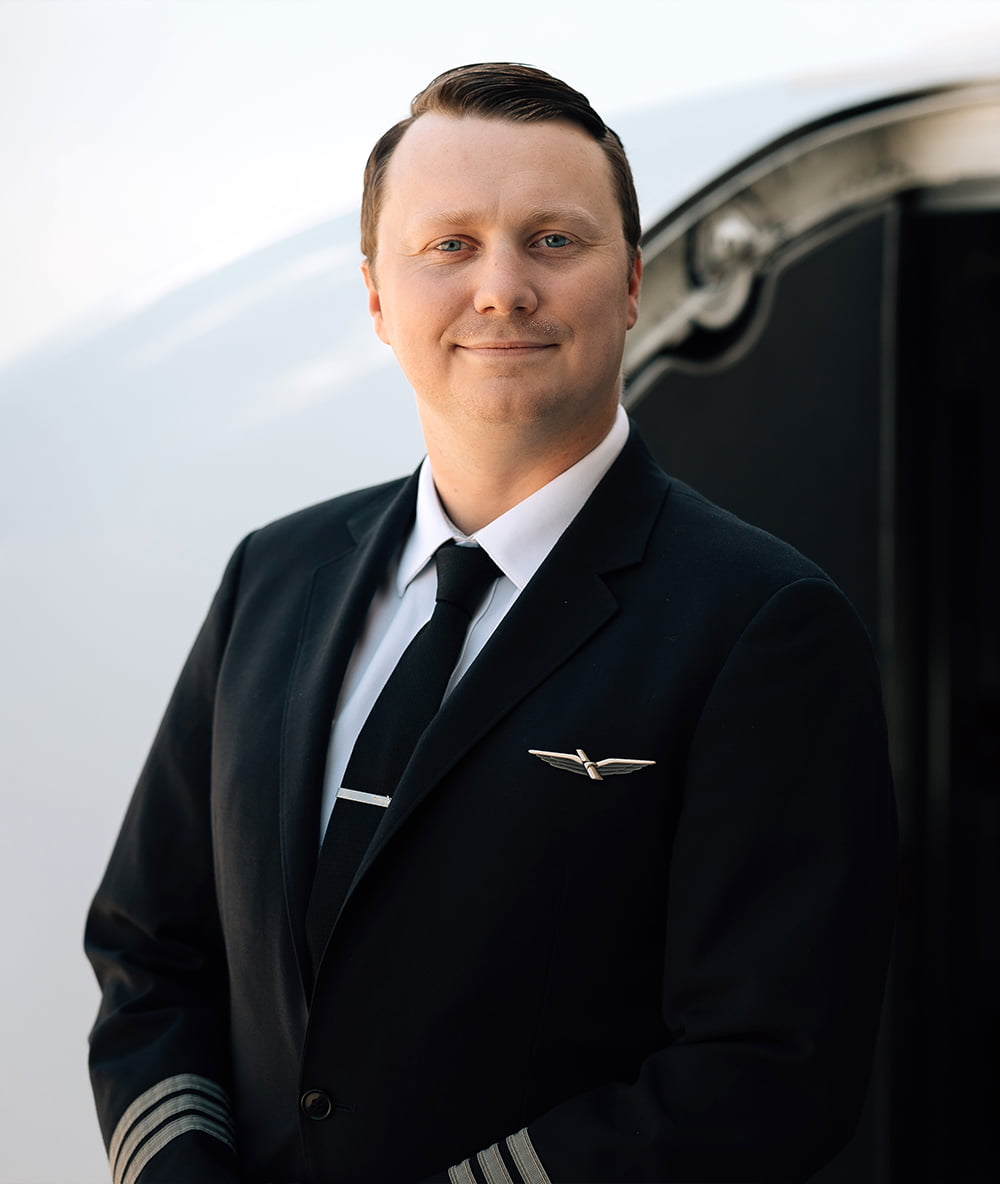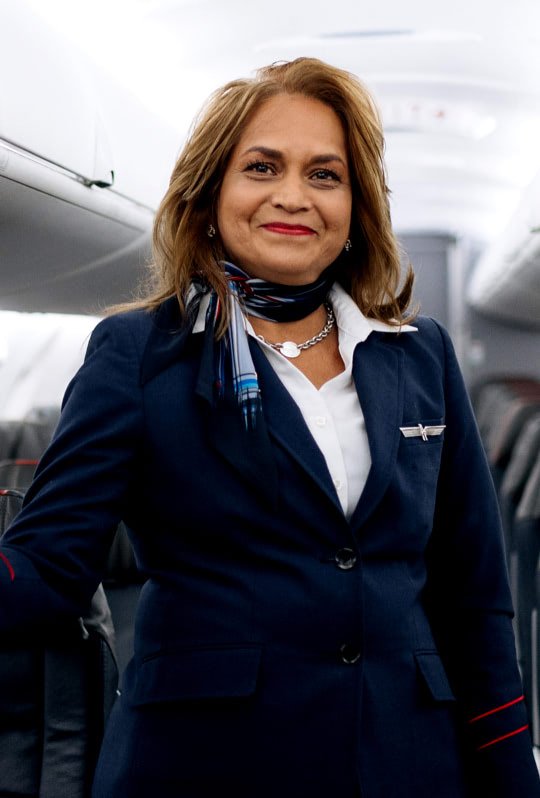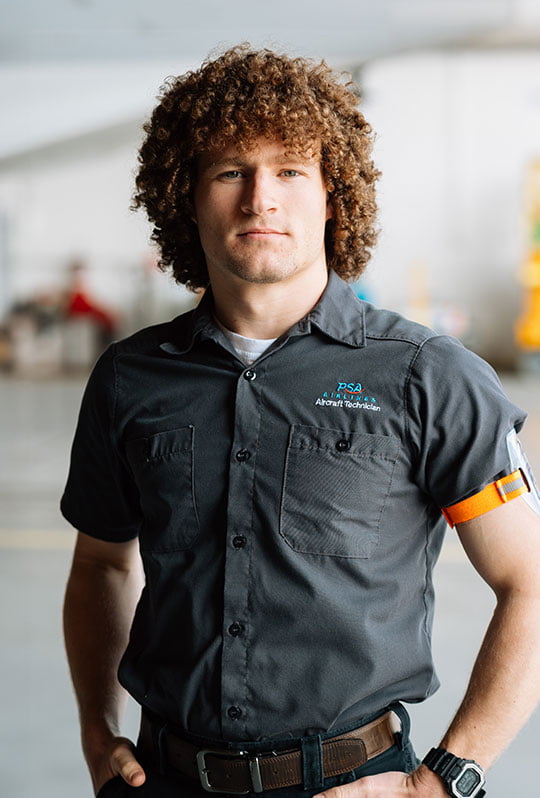Stay Current PSA Newsroom
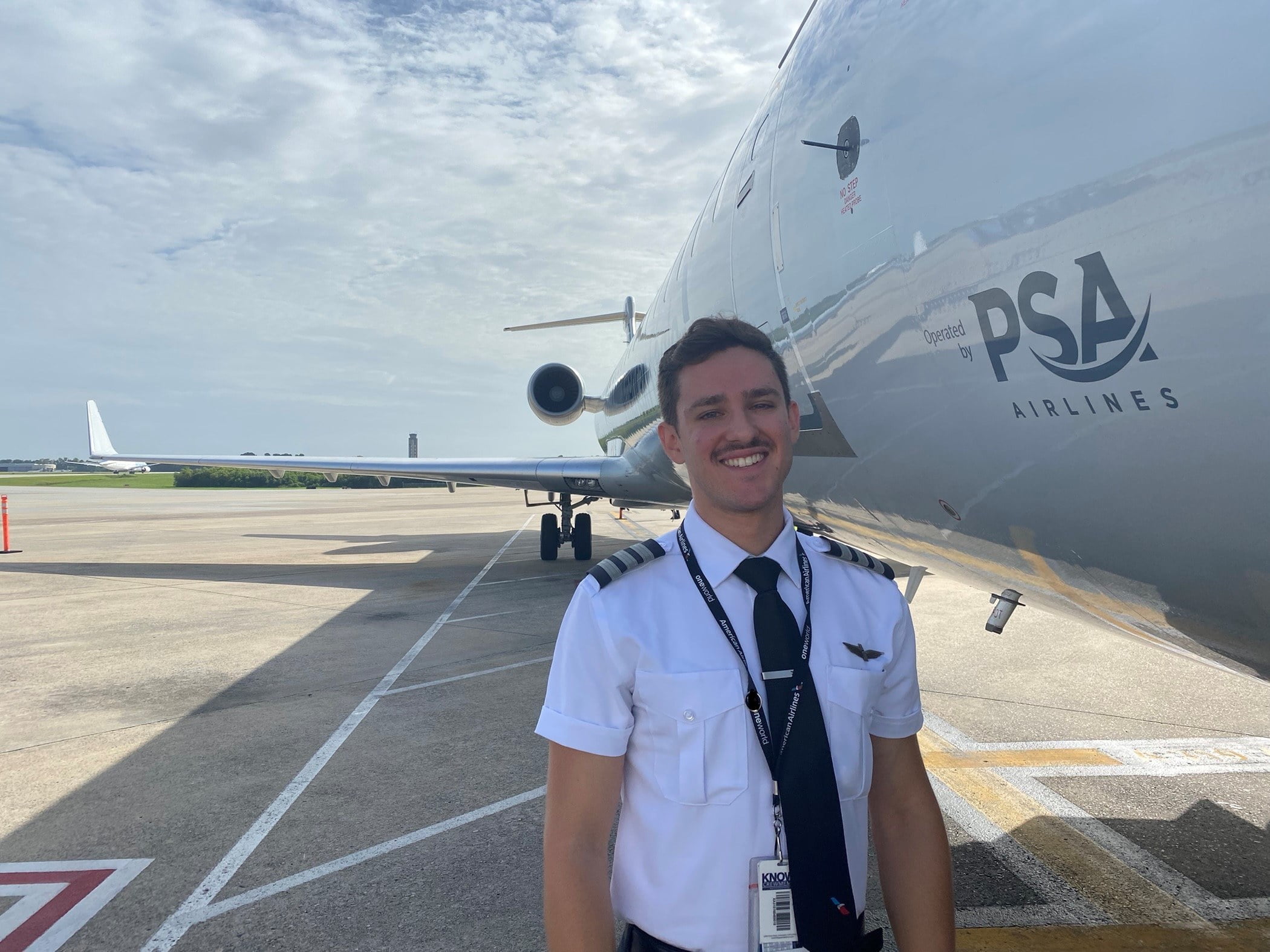
January 10, 2023
Hispanic Heritage Month Feature: First Officer Adam Sciupac
Hispanic Heritage Month feature: First Officer Adam Sciupac
In honor of Hispanic Heritage Month, which spans Sept. 15-Oct. 15, we’re celebrating the diverse cultures of our team members and spotlighting those with heritages rooted in all Latin American countries. Today, we’re featuring First Officer Adam Sciupac, who has a passion for supporting Spanish-speaking pilots achieve their aviation dreams.
How long have you been with PSA?
I’ve been at PSA for almost three years.
What inspired you to explore an aviation career?
As a child, my family would often fly from California to Uruguay in South America to visit my grandparents and cousins. I would associate flying with the joy of visiting family and experiencing the world. I remember peering out the window and just being fascinated by this smooth machine hurling through the sky.
What unique perspectives have you gained from your Hispanic heritage?
I was born in Northern California to immigrant parents. My mother was born in Montevideo, Uruguay and my father in Buenos Aires, Argentina. They both experienced dictatorships growing up and made a lot of sacrifices to create something better for themselves and their family. There’s no doubt in my mind that their experiences shaped my perspective on the world around me. Their sacrifices have given me a sense of empathy and gratefulness empowered by a strong drive to achieve. Maintaining a Latin culture at home and spending time in the countries they grew up in, I’ve always been reminded of where I come from. This has been especially important when navigating an industry that has historically been more accessible for the well-off.
You are a part of the Latino Pilots Association. Tell us more about that:
The Latino Pilots Association is a non-profit organization committed to empowering, supporting, and mentoring the underrepresented in our communities. We engage with our local communities. We often speak at schools, give our time to food banks, tutor English learning students, and more. We have created a family of pilots (of all levels) who lean on one another for support and provide a beautiful sense of community. LPA has been an effective and constructive reminder of where I come from and all the sacrifices made to get into the industry.
What is your involvement with the LPA?
I’m the point of contact for the organization within PSA, meaning anyone interested in LPA can talk to me about joining and getting involved. Particularly, I’m working on creating a presence within the Charlotte community. I think it’s valuable for pilots and incoming pilots to know there’s a group of us at PSA that can provide support; whether it’s someone navigating the training process with English as their second language, someone looking to give back to their community, or someone looking for a community of their own. I’ve never felt more encouraged from a group of fellow professionals.
What do you love about PSA and would you recommend it to other pilots?
I’d say the best part about PSA is the fellow crew members. There’s a sense of family here, and you’ll always fly with people who are willing to help make you better.
What are your career goals and how has PSA helped you achieve them?
I am most fulfilled when I am helping others achieve their dreams. Along with flying a wide-body at a major airline, I want to create a career where I am involved in mentoring and teaching – both at the airline and outside of it. PSA has given me the opportunity to establish myself as an airline pilot and learn about the inner workings of an airline. Because of my ambition and drive to always be challenged, I’m also currently trying to get involved in certain departments within PSA where I hope to contribute to the success of the airline and its team members, as well as learn as much as I can along the way.
Do you feel the Latino population knows about the opportunities within the aviation industry?
I think the Latin population is less aware of the opportunities that exist in the aviation industry. It’s not that the information isn’t out there, but historically, the Latin population has less access to those sources of information. Many can’t attend after-school programs, don’t have access to the internet, or can’t afford to spend their time away from supporting their families.
I believe the challenge that exists in extending opportunities to the Latin population is multi-faceted. It must include both information dissemination, financial assistance and other creative forms of aid (such as transportation subsidies, housing and food assistance during training, mentorship programs, etc.) that might be better handled by smaller, more localized organizations. It can be easy to say, “we’ll just give financial aid to Latin populations,” but the challenges and struggles are more complex. Many Latin people come from families that have been at a disadvantage since the time any one of their ancestors came to the U.S.
The industry is starting to have the right conversations, with organizations and companies recognizing the needs and benefits of creating a more equitable economic society. One thing is for certain: the tenacity, ambition, drive and, most importantly, family values of the Hispanic culture has helped us persevere and make something for ourselves.


